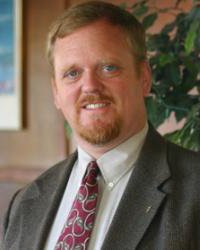- Home
-
About
 Fidelity & Excellence
Fidelity & ExcellenceThomas Aquinas College is unique among American colleges and universities, offering a faithfully Catholic education comprised entirely of the Great Books and classroom discussions.
-
A Liberating Education
 Truth Matters
Truth MattersTruth, and nothing less, sets men free; and because truth is both natural and supernatural, the College’s curriculum aims at both natural and divine wisdom.
-
A Catholic Life
 Under the Light of Faith
Under the Light of FaithThe intellectual tradition and moral teachings of the Catholic Church infuse the whole life of Thomas Aquinas College, illuminating the curriculum and the community alike.
-
Admission & Aid
 Is TAC Right for You?
Is TAC Right for You?Do you enjoy grappling with complex questions? Are you willing to engage in discussions about difficult concepts, with the truth as your ultimate goal?
-
Students & Parents
 Mind, Body & Spirit
Mind, Body & SpiritThere is always something to do at TAC — something worthwhile, something fulfilling, and something geared toward ever-greater spiritual and intellectual growth.
-
Alumni & Careers
 What Can You Do with a Liberal Education?
What Can You Do with a Liberal Education?Nothing speaks more to the versatility of the College’s academic program than the good that our alumni are doing throughout the Church and the world.
- Search
- Giving
Dispatches from Rome, Part II
Yesterday we posted the first in a series of reflections by Michael Van Hecke (’86), an American delegate to the World Congress on Catholic Education in Vatican City. Below is part two.
View from Inside Rome
By Michael Van Hecke (’86)
World Congress on Education
Castel Gondolfo/Vatican City
Thursday, November 19, 2015

During the first full day of the congress, I was very much occupied — with my list. As I met people, and passed them or had lunch next to them, I added them to a list of countries from which they hailed. I counted 62 nations — 62 nations of Catholic educators — and those are only the ones I personally encountered. I do not know the total number of nations represented, but what a grand exhibition of the universality of our church! How beautiful the commitment and love for the Church and children this showing represented. Second on my list of memorable moments today was meeting a most gracious son of the Church, one of the archbishops from Nigeria, and dozens of other holders of the torch of the Gospel mission from the African continent: Cameroon, Zimbabwe, the Ivory Coast, Congo, Gabon, etc. It was inspiring to be among them.
Other than that, it was a very long day, marked by almost two dozen talks. It was quite a lot to take in, given the worldwide representation and the global perspective. By global perspective, I do not refer to one idea that fits the whole globe, but many ideas emanating from a myriad circumstances of politics, ethnicity, religion, socioeconomic status, war, and persecution. It was overwhelming at points. Yet, in the face of all of that, the message of the necessity of the Gospel and love of neighbor reigned universal. It was the one thing all speakers had in common.
That was the upside.
One downside was a seeming lack of response to the many problems and challenges that face Catholic education. With all the “leaders” in Catholic education from so many varied areas of the world speaking, none seized upon one of the most obvious aids to improving education globally, and that is a better grasp of Christian anthropology as it relates to the manner and material of education. There seemed to be a collective misconception that our world has advanced tremendously from primitive cultures to a most advanced civilization. We seem to not see the beauty around us here in Rome, where every church seems to have a Bernini, Michelangelo, Caravaggio, or a Raphael. How has this come about? By education. By philosophy. By defining terms and honoring the dignity of man, which is a direct result of a growing Catholic intellectual custom. Why have we forgotten this? Why can we not consider our dilemma and ask the simple questions of how we got to where we are today — how have we come this far? And why are we now seeing so many troubles? And to ask all such questions and, yet, not despair!
However, questions from the floor, comments from some presenters, and many conversations between sessions revealed that there still is a common, collective, and reflective sense. Generally, the speakers seemed very committed and focused on the need for relationship and true, sound, Catholic education. The import of many of the participants was that a sound, liberal arts education, rooted in Catholic intellectual traditions, is the human piece of the puzzle that gets us there. It was clear that we need to renew the liberal arts approach, and we need to provide to students sound materials which support Catholic thought, philosophy, and moral structure.
Yes, there is hope. While there still remains confusion, as there always will, a big concern we see in speeches and the document is that we are increasing our reliance and dependence on governmental educational structures which are becoming more antithetical to our mission and the soul of Catholic education. We must recapture the passion and purpose of a true Catholic education. We must not succumb to social, economic, and political pressures — we must do everything it takes to provide sound Catholic education for our children. We must do this for the future of our Church and the future of civilization. As one speaker, representing parents from Italy, challenged the Church: “Do not close the schools!”
Arrivederci

